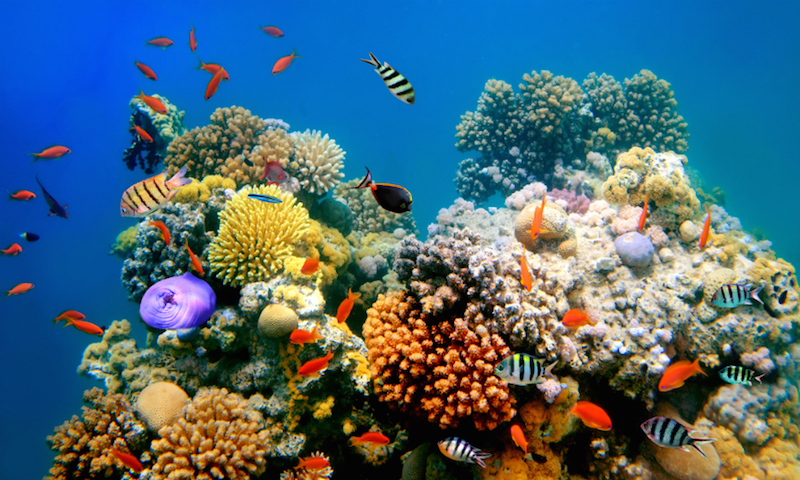Select a Bonus Cause
- Click to stop Animal Testing Animal Testing
- Click for Big Cats Big Cats
- Click to prevent Breast Cancer Breast Cancer
- Click for Children Children
- Click to stop Climate Change Climate Change
- Click to stop Dog Fighting Dog Fighting
- Click to end Hunger Hunger
- Click to stop the Ivory Trade Ivory Trade
- Click for Oceans Oceans
- Click for Primates Primates
- Click for Rainforests Rainforests
- Click for Reefs Reef
- Click for Sea Turtles Sea Turtles
- Click to stop Trapping Trapping
- Click for Veterans Veterans
- Click to stop Violence Violence
- Click to Stop Water Pollution Water Pollution
- Click for Whales and Dolphins Whales and Dolphins
- Click for Wolves Wolves
- Click to stop the Yulin Festival Yulin Dog Festival
Reef

Coral Restoration Foundation
What We Do & Why
We are a nonprofit ocean conservation organization working to restore our coral reefs, educating others on the importance of our oceans, and using science to further research and monitoring techniques. We are dedicated to creating offshore nurseries and restoration programs for threatened coral species. These programs have allowed us to take the lead in innovative nursery and restoration techniques that are implemented worldwide.
Due to multiple stressors in the late 1970s and early 1980s, previously dominant reef building corals throughout the Florida Keys and the Caribbean declined dramatically, leaving the remaining corals scattered and facing extinction.
Through propagation techniques, tens of thousands of corals are grown and maintained in multiple offshore coral tree nurseries before being strategically outplanted on reefs allowing them to continue on a path to natural recovery.
With the help of students, volunteers, scientists, and donors, our corals are successfully raised until they are reefready, outplanted onto the reef, and monitored. Our innovative techniques are scalable and they are making a difference for our oceans.
Threats to Reefs
The coral reefs throughout the Florida Keys and the Caribbean have experienced unprecedented declines since the 1970s. Local reefs were once dominated by two species of reefbuilding corals: staghorn (Acropora cervicornis) and elkhorn (Acropora palmata).
Staghorn and Elkhorn Corals
Staghorn and elkhorn corals naturally reproduce several different ways. One way they can grow and reproduce is through fragmentation. If a branch falls off on the reef and conditions are favorable, it can reattach to the rock and begin to grow a new colony.
In February, we began adding blade fire coral to our nurseries.
Before we can outplant, we plan to build up our nursery stock over the next year, which means we will continually frag the pieces we already have and put in multiple trees of each unique strain. We look forward to adding it to the reefs along with more staghorn and elkhorn in 2017!
Blade Fire Coral
Blade fire coral also known as Millepora complanata, is one of the corals we are working with. They have been listed as least concern on the IUCN Red List, but there has been a visible decline along the Keys reefs due to numerous bleaching years back to back.
We take advantage of this naturally occurring process, allowing us togrow thousands of corals in our offshore underwater nurseries. After about 69 month the corals have reached a substantial size (about dinner plate size) and are reefready. We are then able to outplant them to the reef using a nontoxic, allnatural epoxy.
Boulder Corals
We have recently started working with boulder corals! Check back for updated information on this specific coral.
Coral Tree Nursery
In 2010, we developed the Coral Tree Nursery: a simple framework of PVC pipe that resembles the shape of a tree. The nursery tree is tethered to the ocean floor and buoyed with a subsurface float. Coral fragments are hung from the branches of the tree using monofilament line.
Coral Outplanting and Maintenance
Corals are grown in our nurseries for approximately six to nine months. After they have reached a substantial size, they are removed from the nursery, tagged, and taken to a local reef where they are attached directly to the reef using an allnatural, nontoxic epoxy. Maintenance and monitoring of reef restoration sites continues years after the original coral outplanting.
Coral colonies are routinely checked for disease, predation, tissue paling, and other deteriorating factors. Our staff and volunteers reattach broken fragments to the substrate, where they will grow into new coral colonies. Without reattachment, the broken fragments would most likely be unable to attach to the reef substrate on their own and would not survive.
Educational Resources on Coral Reefs for Teachers K12
We love bringing coral reef education into your classroom! Because of this, we are in the process of developing this section of our website to include Educational Resources on Coral Reefs via: Lesson plans Classroom activities Presentations And other resources helpful to program leaders and teachers alike
These resources will be meant to help your students learn about coral reefs, including basic coral biology, coral reef ecosystems, human use, threats, and conservation efforts.
In the meantime, please dont hesitate to contact Ashley Hill, our Volunteer & Education Coordinator, with any questions or needs you may have. We will do our best to provide you with resources while this section is being built.
Here is a link to their site: https://coralrestoration.org/
Sponsoring Advertisers
The following advertisers help make your donation a reality!
